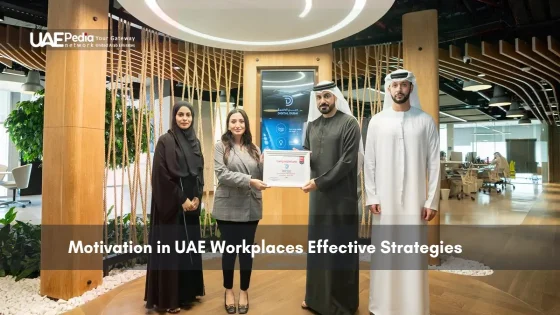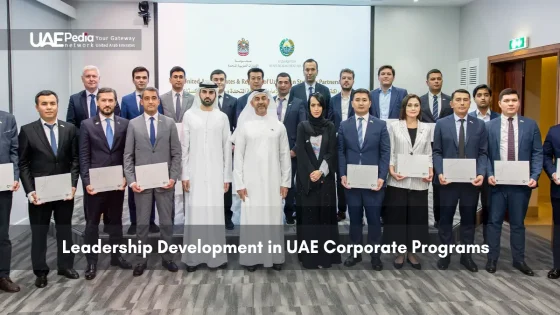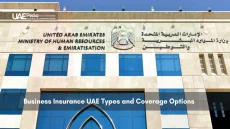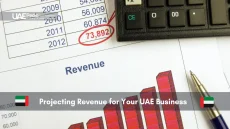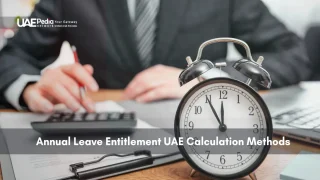Did you know over 90% of workers in the Emirates sign contracts without fully grasping their legal safeguards? The UAE’s labour system blends modern protections with cultural traditions—but unlocking its benefits starts with knowing where to look.
We’re breaking down everything from paycheck rules to dispute resolution, straight from the government’s Know Your Rights handbook. Whether you’re reviewing your first offer letter or navigating workplace changes, this guide turns legal jargon into clear action steps.
You’ll discover how to spot red flags in work agreements, protect personal documents like Emirates ID, and file complaints through official channels. We’ve also decoded cultural nuances—like why a respectful approach matters when discussing concerns with employers.
- Master contract essentials that shield your career
- Navigate fee structures and salary timelines confidently
- Learn complaint processes that actually get results
Key Provisions of UAE Labour Law and Employee Rights
Picture this: a legal framework blending desert wisdom with modern fairness—where cultural respect meets concrete safeguards. The labour law here acts like a palm tree’s roots, stabilizing work relationships while allowing growth. Let’s unpack its essentials without getting lost in legal oases.
Essential Elements of Employment Contracts in the UAE
Every job starts with ink on paper, but what matters most? Clarity on wages, roles, and termination rules tops the list. Employers are required to provide written employment contracts in a language understood by the employee, detailing all terms and conditions—no more guessing games about payday schedules or probation periods.
Fair treatment isn’t optional. The law bans discrimination based on race, gender, or religion. It also requires employers to:
- Cover visa and insurance costs
- Protect personal documents like Emirates ID
- Resolve disputes through official channels
Federal Decree Law No. 33 of 2021 mandates that all employment contracts in the UAE be explicit, lawful, and registered with the Ministry of Human Resources and Emiratisation (MOHRE). This ensures both employers and employees are protected under the law. Ref.: “2025 UAE Employment Contract Sample & Expert Advice – Labour Lawyer UAE.” [!]
Working Hours, Overtime, and Leave Policies
Burnout has no place here. Standard working hours are capped at 8 hours per day and 48 hours per week. However, flexible work arrangements, including remote work and compressed workweeks, are increasingly adopted. Overtime? It’s paid at 125% of regular wages or grants compensatory leave. Ramadan brings adjusted hours, blending spiritual needs with productivity.
| Factor | Public Sector | Private Sector |
|---|---|---|
| Weekends | Saturday-Sunday | Flexible (1-2 days) |
| Overtime Pay | 150% rate | 125% rate |
| Probation Period | 3 months max | 6 months max |
The Ministry of Human Resources and Emiratisation plays referee—they’re your first call for unresolved issues. Their digital complaint portal turns frustration into action, often within 15 business days. For deeper insights, this comprehensive guide breaks down every clause.
Think of these rules as your workplace GPS. They don’t just prevent wrong turns—they map routes to mutual respect between employers and teams. Because when everyone knows the rules, the game gets fairer for all players.
While the standard working hours are capped at 8 hours per day and 48 hours per week, certain economic sectors or categories of workers may have different working hours as specified by the Executive Regulations of the Labour Law. Ref.: “Working hours and overtime | The Official Portal of the UAE Government.” [!]
Comprehensive Overview of UAE employee rights
Imagine stepping into a workplace where every paycheck and protection comes with a government-backed guarantee. The Emirates’ labour framework acts like an invisible shield—crafted through decades of refinement to balance productivity with personal dignity. Let’s decode what this means for your daily grind.
Every worker here—whether born in Abu Dhabi or arriving from abroad—gets ironclad protections. Written agreements aren’t just paperwork; they’re your first line of defense. The law mandates clarity on salary timelines, leave allowances, and termination rules. No more guessing games about vacation days or overtime rates.
Employers must uphold three non-negotiable pillars:
- Timely wages deposited through monitored systems
- Safe workspaces free from harassment or discrimination
- Transparent processes for raises, promotions, and grievances
| Core Protection | Statutory Minimum | Common Contract Extras |
|---|---|---|
| Annual Leave | 30 days after 1 year | Airfare allowances, bonus leave |
| Working Hours | 8 hours/day | Flexitime options, remote work days |
| Dispute Resolution | Ministry mediation | Third-party arbitration clauses |
The Wage Protection System (WPS), mandated for all employers, ensures timely salary payments through monitored electronic transfers. Non-compliance can result in penalties, including license suspension. Missed salary? The Ministry steps in fast—often freezing company licenses until balances clear. Cultural respect threads through it all. Discussing concerns? A calm, evidence-based approach works better than confrontational demands.
Knowledge here isn’t just power—it’s professional armor. When you understand what’s guaranteed versus negotiable, you navigate opportunities smarter. And isn’t that what thriving in a global hub’s all about?
Employers failing to pay employees properly or engaging in unauthorized termination of staff can face monetary penalties ranging from AED 5,000 to AED 100,000. Repeat violations within a year can lead to doubled fines or additional imprisonment. Ref.: “UAE workplace violations: Legal framework, employee rights, and compliance measures.” [!]
Navigating Employment Contracts and Legal Procedures
Think of your work agreement as a roadmap—every clause directs your journey through roles, rewards, and remedies. Let’s decode what makes these documents legally sound and how to steer through rough patches when they arise.
Under the 2024 amendments, MOHRE can issue binding decisions on labour disputes involving claims up to AED 50,000, streamlining the resolution process and providing faster resolutions for employees. Ref.: “Workers’ Rights under Federal Decree-Law on the Regulation of Labour Relations.” [!]
Essential Contract Components
A compliant agreement isn’t just paperwork—it’s your career compass. Look for these non-negotiable elements:
- Start date and duration (fixed-term vs. unlimited)
- Exact salary figures and payment timelines
- Clear job responsibilities and probation period
- Health insurance coverage details
Pro tip: Employment contracts should align with the initial offer letter. Any discrepancies should be addressed and rectified before commencement of employment.. Spot discrepancies? Request revisions before starting work.
When Agreements Hit Bumps
Even the best plans need plan Bs. The Ministry of Human Resources & Emiratisation (MoHRE) operates a 3-step resolution system:
- Direct negotiation with your employer
- Formal complaint via MoHRE’s digital portal
- Labor court hearings for unresolved disputes
Under the 2024 amendments, MOHRE can now issue binding decisions on labour disputes involving claims up to AED 50,000, streamlining the resolution process. Keep records of all communications—they’re your evidence toolkit. As one legal advisor puts it: “Clear documentation turns ‘he said, she said’ into actionable solutions.”
Review every clause like you’re proofreading a treasure map. Missing benefits? Unclear termination terms? Flag them early. Because in the world of work agreements, clarity isn’t just power—it’s protection.
Health and Safety Regulations in the Workplace
Consider your workplace safety gear—that hardhat isn’t just plastic. It’s a symbol of legal shields guarding your well-being. Employers here must create environments where risks get neutralized before coffee breaks turn hazardous.
Labour rules transform dusty construction sites and polished offices into monitored safe zones. Protective measures range from first-aid stations to ergonomic chairs—every detail matters. Ventilation systems? Check. Fire exits? Mandatory. Employers who fail to comply with health and safety regulations may face fines ranging from AED 100,000 to AED 1 million, depending on the severity of the violation.
Three non-negotiables under local regulations:
- Regular health checks for high-risk roles
- Safety gear provided at no worker cost
- Training sessions on emergency protocols
| Employer Must Provide | Worker Entitlements |
|---|---|
| Hazard-free workspaces | Refuse unsafe tasks without penalty |
| Overtime compensation | Report violations anonymously |
| Medical coverage | Access complaint hotlines 24/7 |
The Wage Protection System acts like a financial bodyguard—blocking illegal salary cuts. One legal advisor notes: “Docking pay for broken equipment? That’s like charging firefighters for water—completely prohibited.”
Labour inspectors conduct surprise visits, armed with checklists and authority. Repeat offenders risk operational bans. Workers who know these rules become safety ambassadors—spotting loose scaffolding or missing permits becomes second nature.
Your voice matters here. Unsafe conditions? Document any unsafe conditions and report them via MOHRE’s official channels, including their website, mobile app, or by calling 600-590-000.. Because in today’s workplaces, vigilance isn’t just smart—it’s survival.
Employers who fail to comply with health and safety regulations may face fines ranging from AED 100,000 to AED 1 million, depending on the severity of the violation. This underscores the importance of adhering to safety standards to protect workers. Ref.: “Health and safety at workplace | The Official Portal of the UAE Government.” [!]
Working Hours, Leave, and Flexibility in the UAE
Ever watched desert sunsets while calculating overtime pay? The Emirates’ approach to work-life balance blends structure with adaptability—like a well-oiled dhow sailing between tradition and modernity. Let’s chart how time gets managed under local labor standards.
Clocks In, Productivity On
Standard schedules cap at 8 hours daily or 48 weekly. But flexibility rules here. Many companies offer:
- Compressed workweeks (4 longer days)
- Remote Fridays during summer months
- Overtime rates starting at 125% base pay
Ramadan shifts showcase cultural sensitivity. Workdays shorten by 2 hours nationwide—no exceptions. Government staff enjoy fixed weekends (Sat-Sun), while private sectors set their own rhythms.
When Time Becomes Treasure
Annual leave isn’t just a perk—it’s law. After one year, workers earn 30 paid days off. Public holidays add extra breathing room, with extended weekends often announced months ahead.
| Standard Work Setup | Flexible Alternatives |
|---|---|
| 8-hour days | 10-hour shifts (4 days/week) |
| 48-hour weeks | Remote work agreements |
| 30-day annual leave | Unused days convertible to pay |
Tracking hours matters. Apps like MOHRE let workers verify schedules and report discrepancies. One HR manager quips: “Accurate timekeeping is essential for verifying work hours and ensuring proper compensation.”
Parental Leave and Anti-Discrimination Measures
What if career growth and family life could coexist seamlessly under desert skies? The Emirates’ approach to parental support blends legal muscle with cultural warmth—like a shaded oasis for working families. Let’s explore how new parents and protected groups navigate workplace dynamics here.
As of 2024, new mothers are entitled to 60 days of maternity leave—45 days fully paid and 15 days at half pay. Fathers are entitled to 5 working days of paid parental leave, which can be taken within six months of the child’s birth. Ref.: “Maternity leave | The Official Portal of the UAE Government.” [!]
Benefits and Leave Policies for New Parents
As of 2024, new mothers are entitled to 60 days of maternity leave—45 days fully paid and 15 days at half pay. Additionally, they may request up to 45 days of unpaid leave for health-related reasons, supported by a medical certificate. Fathers are entitled to 5 working days of paid parental leave, which can be taken within six months of the child’s birth. Contracts often sweeten the deal with:
- Extended leave periods beyond legal minimums
- Flexible return-to-work arrangements
- Childcare subsidies or on-site facilities
One HR manager notes: “We’ve seen companies offer ‘baby bonuses’ equivalent to a month’s salary—always check your contract’s fine print.”
Legal Protections Against Workplace Discrimination
The law shields workers from bias like a falcon’s wings guard its nest. Pregnancy-related dismissals? Straight-up illegal. Employers can’t demote, reduce pay, or deny promotions based on gender or parental status. Human Resources and Emiratisation teams conduct surprise audits, ensuring workplaces walk the equality talk.
| Statutory Minimum | Common Contract Enhancements |
|---|---|
| 45-day maternity leave | 90-day full-pay options |
| 5-day paternity leave | Remote work extensions |
| Anti-discrimination training | Lactation room mandates |
Keep your contract closer than morning karak tea. While employers can add perks, they can’t subtract guaranteed rights. Spot red flags? The Ministry’s hotline (600-590-590) turns concerns into action faster than a sandstorm rolls in.
“read also: Employee Compensation UAE Packages and Components
Dispute Resolution and MOHRE Support Services
What if resolving workplace issues felt like sending a text message? The Emirates’ justice system now fits in your pocket—digital tools transform complex disputes into streamlined processes. Let’s explore how tech bridges gaps between workers and fair solutions.
“read also: UAE Workplace Technology Trends Reshaping Offices“
Leveraging Digital Platforms for Labour Complaints
MoHRE’s online portal works like a 24/7 justice concierge. File complaints, track progress, or upload evidence—all without leaving your couch. Key features include:
- Auto-translation for 8 languages
- Real-time case status updates
- Fee waivers for claims under AED 100,000
Most disputes resolve within 15 working days. One legal advisor remarks: “We’ve seen salary delays fixed faster than delivery apps bring shawarma—the system’s that responsive.”
“read more: UAE Work Technology Governance Framework and Compliance“
Accessing Professional Legal and Advisory Support
Prefer human guidance? Dial 800-665-559 for free consultations. Trained specialists decode contract clauses and explain entitlements—no legal jargon, just clear next steps.
| Digital Tools | Human Support |
|---|---|
| 24/7 complaint portal | Arabic/English hotlines |
| Electronic evidence upload | In-person mediation |
| Automated payment tracking | Legal literacy workshops |
Employers face strict penalties for withholding wages or violating work hours rules. Recent updates let workers:
- Request emergency salary releases
- Challenge unfair probation extensions
- Access free arbitration services
Knowledge here isn’t just power—it’s protection with a click. Because fair treatment shouldn’t require a law degree.
“read more: Business Banking UAE Options for SMEs“
Final Thoughts on Upholding Workplace Equity
Charting your career path here becomes clearer when you recognize the tools at your fingertips. We’ve navigated everything from contract fine print to digital complaint systems—each designed to turn legal protections into daily realities. Knowledge transforms workplaces: understanding terms boosts confidence, while tracking entitlements ensures fair treatment.
The Ministry of Human Resources and Emiratisation acts as your compass in this landscape. Their evolving frameworks—like flexible hours and enhanced leave policies—show how cultural values shape modern employment standards. Recent reforms prove progress isn’t just possible; it’s actively unfolding across every sector.
Read More:
Three pillars define success here:
- Regularly consulting the Ministry’s updated guidelines
- Using digital portals for swift conflict resolution
- Viewing fair work practices as shared goals, not concessions
As you pack your knowledge toolkit, remember: thriving in any job starts with proactive awareness. Bookmark the Ministry’s website, join industry forums, and approach challenges like a desert caravan—prepared, adaptable, and always moving forward. Because when employers and workers align under clear rules, everyone reaches the oasis.
Any modifications require mutual consent in writing – unilateral changes violate Federal Decree-Law No. 33 of 2021. Disputes can be filed through the Ministry of Human Resources & Emiratisation’s digital complaint system.
Standard private sector roles cap at 48 hours/week (8 hours/day), extendable to 9 hours daily for specific industries. Overtime pay kicks in beyond these limits unless otherwise stated in collective agreements.
Final settlements – including unused leave and EOSB – must be processed within 14 days of contract end. Delays can result in fines up to AED 1 million under wage protection rules.
Flexible work arrangements under Cabinet Resolution No. 21 of 2022 mandate equal rights regarding leave, insurance, and safety standards – though specific conditions may vary by employer policy.
Termination without valid cause entitles you to 3 months’ compensation or labor court reinstatement. Probationary periods have stricter notice requirements – always document communications.
Absolutely. Article 13 guarantees your right to healthy workplaces. Report hazards anonymously via the MOHRE app – employers face shutdowns for repeated violations.
60 days minimum – 45 days full pay, 15 days half pay – plus 100+ days unpaid if needed. Nursing breaks continue post-return. Paternity leave? 5 paid days since 2020 reforms.
MOHRE typically mediates within 15 working days. Escalate unresolved cases to labor courts within 1 year – keep payslips and WPS records as evidence.

